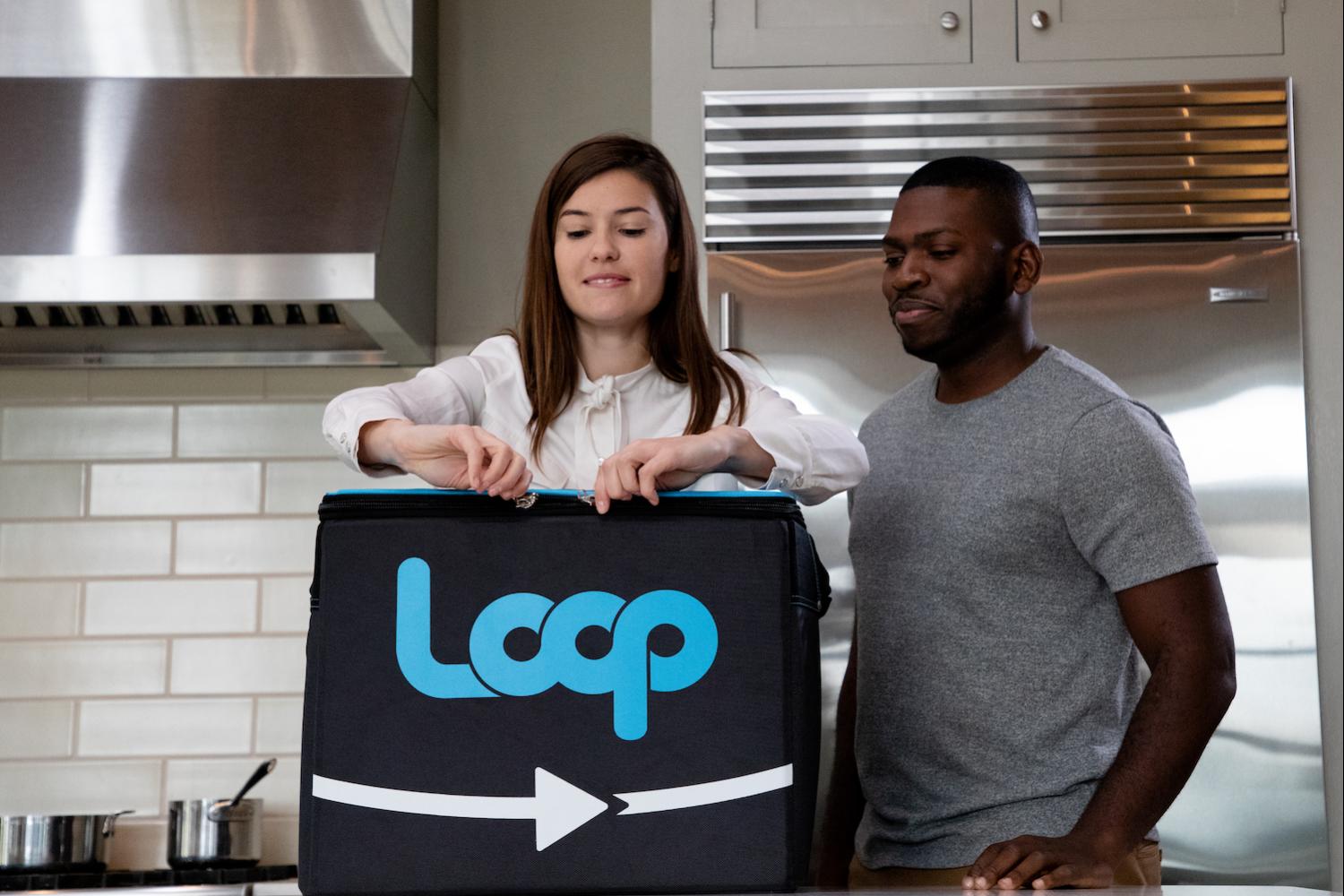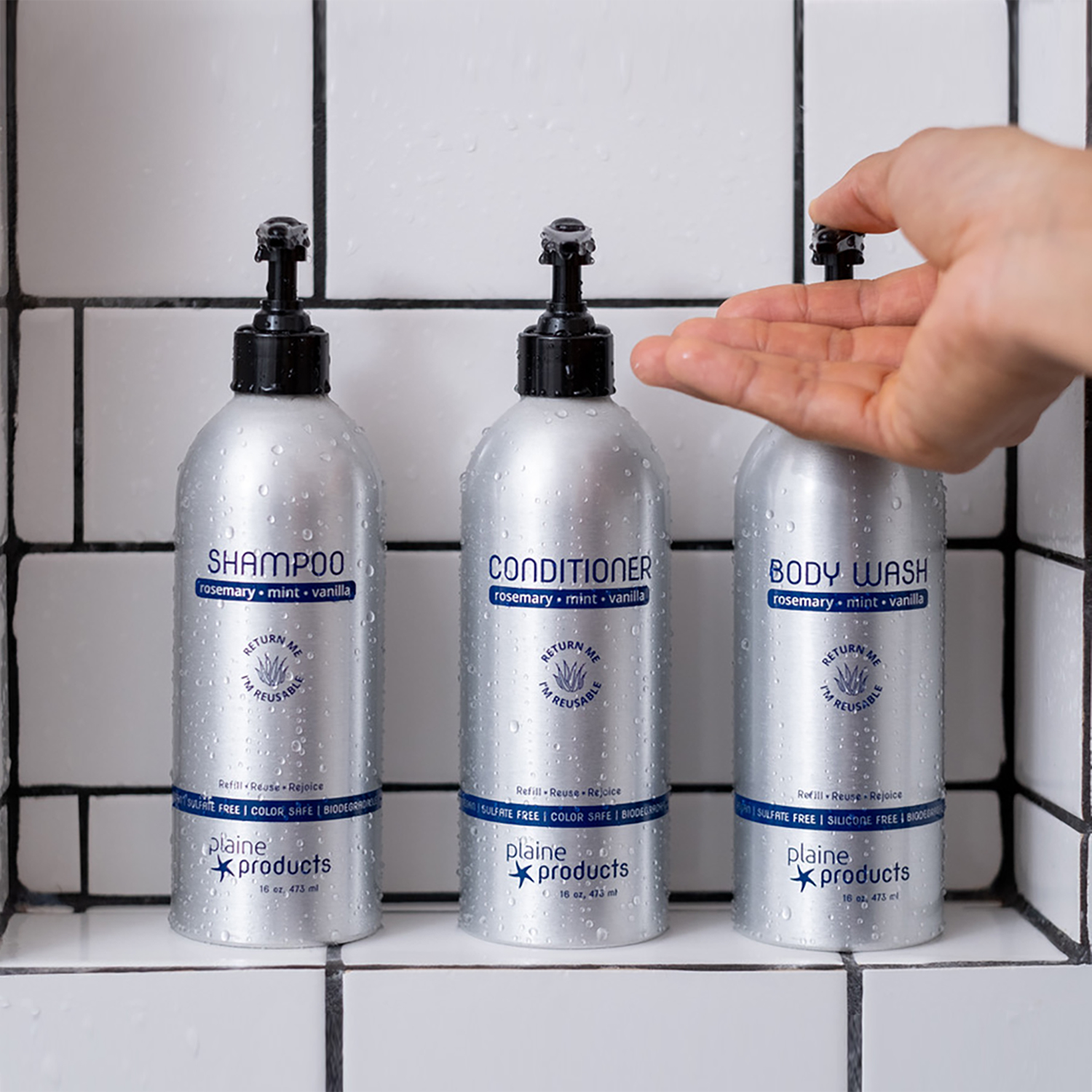
Consumer sentiment began to trend away from disposable packaging — particularly plastics — over the past few years, as images of waterways choked in waste circulated in the media. In a survey conducted by PBS NewsHour last year, two-thirds of U.S. respondents said they'd be willing to pay more to avoid single-use plastic packaging in everyday products.
Then came the novel coronavirus, and with it a resurgence in single-use systems. Cities including Philadelphia, Albuquerque, New Mexico, and Bellingham, Washington, have delayed or suspended plastic bag bans out of fear that the virus could transfer from surfaces to reusable shopping bags and ultimately infect consumers. Major outlets including Starbucks have temporarily banned reusable cups due to similar concerns for health and hygiene.
The plastics industry has seized the opportunity to pressure lawmakers to permanently undo bag bans and similar legislation. But others, including executives at the reusable packaging platform Loop, aren't buying it.
"Single-use is not sterile either," Heather Crawford, Loop’s global VP of marketing and e-commerce, told TriplePundit. "When you buy a disposable package off the shelf, it's been exposed to all kinds of different elements across the supply chain, including packing, transport, or even the customer who picked it up before you and put it back. Reuse in and of itself isn't the problem. It's the method by which it's done."
We spoke with Crawford by phone to learn how the platform often dubbed the milkman of the information age is coping with surging demand for at-home delivery in the midst of the coronavirus — and how safe, hygienic reuse systems can help to prevent a backslide in consumer behavior around single-use packaging.
Loop provides a safe and sustainable alternative during the coronavirus crisis
For those who aren't familiar with Loop, here's a general rundown of how it works: Subscribers choose mainstream grocery, personal care and household products in an online store, and the items are shipped to their door in a reusable tote. When the products are gone, customers simply place the containers back into the tote and schedule a free home pickup through Loop's logistics provider, UPS. Loop sends the packaging through an industrial cleaning process before shipping it back to brands to be refilled, and then the cycle begins again.
"I wouldn't say we've made any structural or operational changes" due to the coronavirus, Crawford said, "because a lot of the elements of the reuse system are already in place for consumer health and safety." Even outside the context of a global pandemic, reuse systems like Loop's must be hygienic in order to keep customers safe and retain public trust, she told us.
"Another thing that's important to consider is the dwell time," Crawford added. After packages are picked up and shipped to Loop's cleaning facilities, it's "typically been anywhere from several days to much more likely several weeks" before they're opened, inspected and put into the cleaning process, she explained. "In the return phase, in the cleaning phase, even in reshipment, there's a much longer dwell time than the disposable package that was placed on the shelf an hour ago by the store associate."
Epidemiologists estimate that the coronavirus can survive a maximum of three days on plastic and stainless steel surfaces, so this is an important factor to note — for the safety of warehouse employees as well as customers.
"The critical element in changing consumer mindsets is that they can trust the hygienic standards of the reuse system," Crawford said. "One global trend that we're seeing is we're watching the stay-at-home orders force us to reduce our environmental footprint, which has resulted in a tremendous positive benefit to the environment — and that's not going unnoticed by consumers. Many are now seeing this as an even higher priority, looking for more sustainable and responsible ways to purchase the things that they need — and I think certain types of reuse systems will survive, where there's trust."
Protecting employees when it matters most
Along with the dwell time already baked into the system, Loop says it's taking additional steps to keep employees safe. All employees who can work from home are doing so, but those working in Loop's cleaning facilities and logistics warehouses — where products are packed into reusable totes and shipped — are essential to keep the company's supply chain running.
For these employees, "we have really vigorous health and safety protocols in place," Crawford said, which include providing adequate healthcare coverage and protective equipment for every person and ensuring social distancing while at work.
If a confirmed coronavirus case or exposure is reported at any of Loop's facilities, the company is ready with protocols to ensure product quarantine, standardization and evaluation of all staff. "Luckily we haven't needed to undergo any of these processes, but we do have all of these policies in place," she told us.

Meeting demand, eyeing expansion
As people shelter in their homes, home delivery for groceries and household products is surging — and Loop is no exception. "We are experiencing record high demand on the platform," Crawford said, with sales nearly doubling in April compared to March.
"Like many retailers, our greatest challenge has simply been keeping up with the demand and restocking product inventory as quickly as we can," she said. "We've definitely experienced out-of-stocks in top-selling products."
For the most part, though, customers looking for grocery and household staples like snack foods, dried beans, pasta and cleaning products will find them in stock, and the Loop platform adds new branded products nearly every week, which has continued through the pandemic.
Over the past three weeks, the Plaine Products bath and body line (pictured above), as well as Seventh Generation laundry detergent and the Oral-B Clic Toothbrush, have newly arrived on Loop. The platform which already sells well-known brands like Crest, Tide, Glad and Gillette is also continuing to add new brand partners.
"We have continued to ink new partnerships at a really steady pace even since the stay-at-home orders began back in March," Crawford said. "In addition to continuing to sign on new brands, we also have hundreds of brands in our pipeline that are currently working on developing their durable packages," as it can take companies a while to redesign their packages to be reusable.
Along with the expansion of brand partnerships and its own private-label collection, Loop is expecting big things ahead. Having launched in 2019 across 10 U.S. states in the Northeast and Mid-Atlantic, the company recently announced it would expand across the entire continental U.S. by this summer.
For her part, Crawford expects demand for reuse systems like Loop's to remain steady, and perhaps even increase, during the pandemic. "Consumers are understandably anxious in this new world, but they still want to make purposeful purchases," she told us. "If you can meet shoppers where they are — which is, right now, at home and online — and also establish trust in the safety and hygiene of the reuse system, even in a difficult situation, what we're seeing is that consumers still really embrace it."
Images courtesy of Loop

Mary has reported on sustainability and social impact for over a decade and now serves as executive editor of TriplePundit. She is also the general manager of TriplePundit's Brand Studio, which has worked with dozens of organizations on sustainability storytelling, and VP of content for TriplePundit's parent company 3BL.














